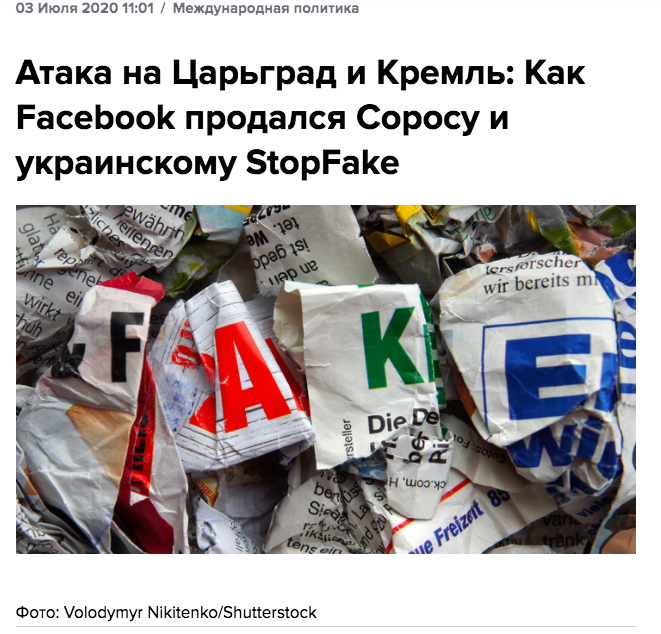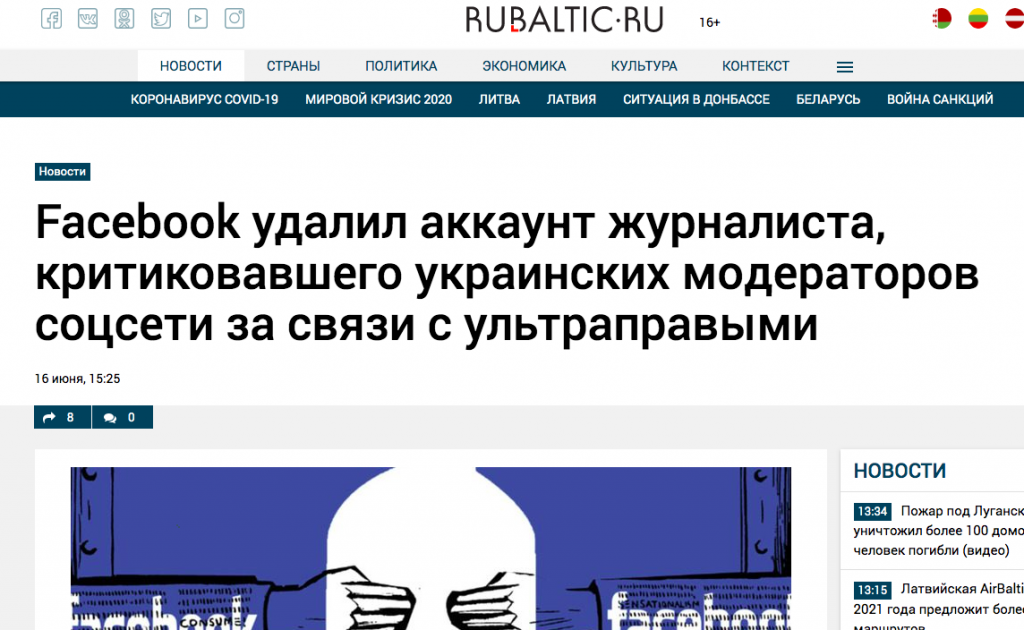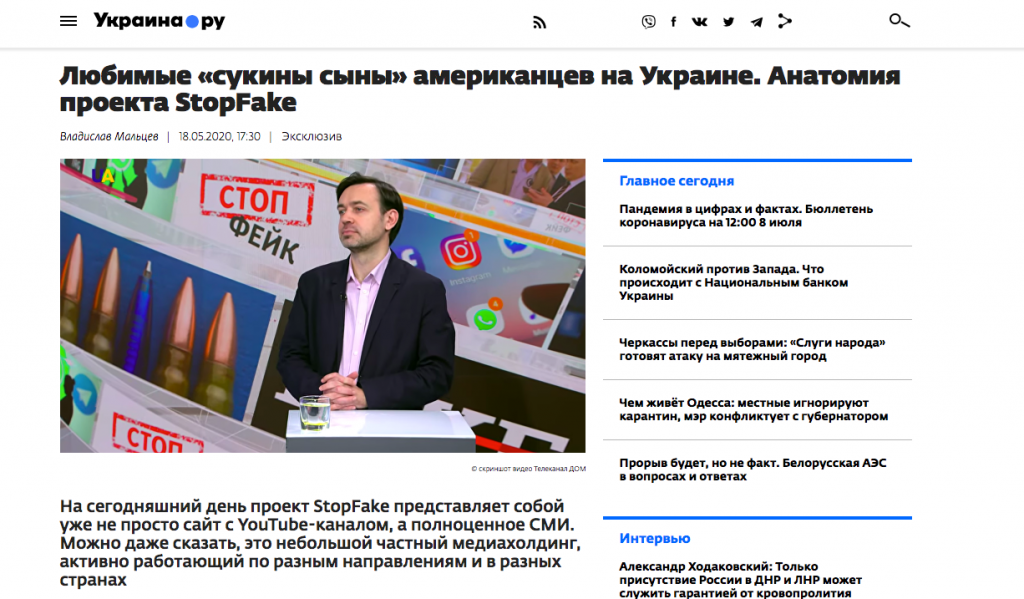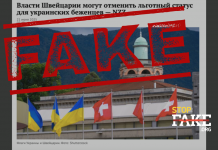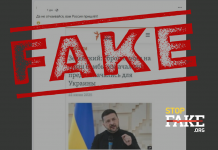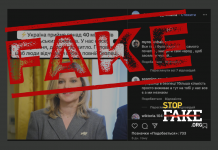The StopFake Supervisory Board Position About the Escalating Information Attacks Directed Against the Project Team
We are convinced that brutal, untrue articles that discredit the activities of the organization, as well as personal threats received by editors and employees are directly related to the fact-checking work of StopFake. A recent publication by journalists of the online publication “Zaborona” showed that defending the truth, StopFake journalists are facing powerful information threats. The accusations published in this article are untrue and cause moral and reputational damage to the organization.
We have conducted an internal investigation and here is our analysis of the situation.
StopFake blocked the article “Zaborona” – not true
The reason for the whole publication in “Zaborona” last week was allegedly blocking of an article published by “Zaborona” on Facebook by StopFake fact-checkers. This is stated by the authors in the first paragraph of the text.
In reality StopFake has never blocked any “Zaborona” material on Facebook. Because StopFake was never authorized to block or delete any Facebook user posts or profiles. StopFake team members have repeatedly talked about in their interviews with various Ukrainian publications. Exploring the topic of StopFake’s collaboration with Facebook, the author could not help but know this.
As part of the partnership with Facebook, fact-checkers can only mark posts that contain inaccurate information, and to include an explanatory article (debunking) justifying why that information is inaccurate. The marked post has a blurred gray background, which sends social network users a warning that the post may contain inaccurate information. Also, the author of the post has the possibility to contact StopFake to correct inaccurate data, and in this case the marking is removed. During 3 months of cooperation with the Facebook system, where potentially untrue posts are selected by an algorithm, the fact-checkers never came across any posts of “Zaborona” or personal posts of any of the representatives of this project.
Commentators’ suggestions that StopFake fact-checkers can label posts as fake based on personal preferences are unfounded, as each material marked as false has a refutation link that can be verified by all Facebook readers. This process is completely transparent.
Therefore, the title of the material “Zaborona” is openly untrue. In addition, StopFake has a special correction policy and this gives a direct opportunity to anyone who has doubts about the labeling of their own content to contact them for feedback.
But also there are other reasons why “Zaborona” material does not meet the standards of journalism and investigative journalism. It contains a lot of manipulative, unsubstantiated and subjective slanderous allegations and that look like black PR.
The thesis about StopFake taking political sides is untrue
The examples given in “Zaborona” itself contradicts their own statement. Since its creation, the objective of StopFake was to identify Russian propaganda (disinformation) fakes. The team was never financially supported by the government of Ukraine or any political forces.
In the context of ongoing Russia’s war against Ukraine, before the election of Volodymyr Zelensky as President of Ukraine, special attention of Russian propaganda was focused on then President Petro Poroshenko. They actively formed and promoted certain narratives and images, which, apparently, StopFake team has repeatedly analyzed in their publications and debunked, because they were related to the broader context of Ukrainian politics. Now this emphasis has shifted to incumbent President Volodymyr Zelensky, so our team continues to monitor these narratives regardless of the political situation in the country – and to debunk fakes about Zelensky.
Examples of such rebuttals are: https://www.stopfake.org/en/fake-president-zelensky-wants-foreign-troops-in-ukraine/, https://www.stopfake.org/en/economic-degradation-russian -media-on-ukraine-s-land-reform /.
A significant part of the StopFake team are well-known researchers and consultants in the field of communications. Therefore, StopFake actively cooperates with the current government, in particular the Ministry of Culture, Youth and Sports of Ukraine, including a team of experts that participated in the process of developing and discussing of the “On Disinformation” draft law (2019). StopFake also signed a Memorandum of Cooperation with the National Council on Television and Radio Broadcasting of Ukraine to counter misinformation.
Paradoxically, in the text of the “Zaborona” itself there is a refutation of their assertion of StopFake’s political bias when the authors write about StopFake’s cooperation with the Ministry of Education and Science of Ukraine within the “Study and Distinguish” program of the Council for International Research and Exchanges (IREX) with the support of the British and US Embassies.
Involvement in neo-Nazism is not true
The only journalistic source to confirm the information in the article “Zaborona” is US journalist Christopher Miller. The authors did not ask any Ukrainian media organization about their views on StopFake’s activities and did not provide any other evidences and points of view. Unfortunately, the only source they have chosen is difficult to call objective.
Journalist Christjpher Miller has repeatedly demonstrated a subjective and hostile attitude towards StopFake, disseminating emotional and unconfirmed information about the project and team members.
Constructive and sound criticism can be treated with respect until it threatens the organization’s reputation and the positive morale of its employees. The article “Zaborona” produced actually looks more like an example of “black PR” (a textbook example of slander) aimed at undermining the reputation of StopFake and its leadership. Unfortunately “Zaborona” presents its point of view based only on quoting Christopher Miller, who initiated a public discussion of this issue and has a subjective, biased attitude towards StopFake.
His attitude has been regularly seen on Twitter for many years in the form of a personal vendetta of this journalist, who obviously does not like StopFake’s consistent position on the protection of Ukraine’s information security. Miller also consistently criticized the socio-political processes that took place in Ukraine – the wider introduction of Ukrainian language, the defense of Ukrainian history and culture, and the process of decommunization. That is, Miller himself, covering the news from Ukraine, consistently did what he accuses StopFake of – politicizing the news. Representatives of the StopFake project have repeatedly complained about Miller’s position and his interference in StopFake editorial work to the RFE/RL management, for whom he wrote materials working in Ukraine.
However, quoting Miller as the only journalist in this article, “Zaborona” cites a set of unfounded claims that are intended to cast a shadow over StopFake’s journalistic standards and personally against Yevhen Fedchenko as editor-in-chief.
For example, Chris Miller claims that Yevhen Fedchenko allegedly “opposes journalists and freedom of speech.” But this is not true, because Yevhen Fedchenko is a leading Ukrainian journalist with more than 20 years of experience in this field.
Yevhen Fedchenko’s main position, which he consistently defended, was not to perceive journalists from Russian propaganda media as representatives of the profession and he consistently fought against all sorts of misinformation. This position has received support in the professional circle of media professionals.
We are convinced that Yevhen Fedchenko’s contribution to the development of freedom of speech and journalistic education is truly invaluable. Yevhen has been teaching at the School of Journalism since 2002, and has been its director since 2006, and its alums work in all the leading media in Ukraine. Including in “Zaborona”.
“Zaborona” uses allegations about Yevhen Fedchenko that have been taken out of context. For example, the mentioned article gives the reader the impression that “Yevhen Fedchenko allegedly supported some far-right people publicly.” As proof, they cite the following: “For example, in 2018, he (Yevhen Fedchenko) criticized the post of Hromadske TV about the detention of Brazilian militant Rafael Lusvarga by representatives of the C14 organization.”
In fact, in his post on Twitter Fedchenko stated the real facts: Olexandr Voitko (whom the authors call a neo-Nazi) was indeed a student at the School of Journalism (there is a documented proof for that), then Oleksandr became a lecturer (it’s also documented fact), and then Olexandr was one of the first to volunteer for the Russian-Ukrainian war and eventually received the status of a war veteran (he has a document about that as well). This is official, open information. But it was on the basis of this post that a conclusion was made about Yevhen Fedchenko’s alleged sympathy for the far-right.
As for the status of the C14 organization, which Hromadske and later Mr. Miller call “neo-Nazis”, there is a decision of the Ukrainian court – three instances, which came to the opposite conclusion :
http://reyestr.court.gov.ua/Review/83537340 ? fbclid = IwAR1pjFdh3phCPkAReGB8cxvLntWsFe4DJR6ZIRMaxUWJS9tufToS385HSa8
There is also a decision of the Commercial Court of Cassation, Case # 910/10429/18, decision of 21.01.2020
“Zaborona” also refutes itself, noting that in August 2019 the court upheld the lawsuit of right-wing radicals.
We believe that such a reaction is a response to public criticism of Hromadske TV. Such aggressive unprofessional steps by “Zaborona” journalists are a direct attack on freedom of speech. It will be usuful to take into consideration that Yevhen Fedchenko was a member of the Hromadske TV Supervisory Board, whose authority was to analyze and evaluate the work of this organization – and critisise it if nesesary.
StopFake member Marko Suprun’s allegations of links to neo-nazis are also not true. The authors of the “Zaborona” article employ the fallacy of guilt by association. Such serious allegations are made mostly on the basis of photographs in which Marko Suprun is next to people whom the author of the article considers radicals. Most of these photos have previously been published on pro-Russian websites or by bloggers.
Marko Suprun has also been photographed with members of Ukraine’s LGBT community, various art communities, film communities, several politicians from different parliamentary factions and ambassadors. He has also been photographed along side Rabbi Yakov Bleich, but this does not make him a member of his synagogue.
Marko Suprun is the host of the English-language TV show StopFake, known for his volunteer work and a public figure. He was a co-producer of the feature film “Nashi Kotyky/Leathal Kittens” a war comedy set in 2014 on the frontlines about Ukraine’s volunteer battalions defending Ukraine from Russian invasion. Suprun gives many lectures and presentations to various audiences, takes photos with participants of such events. Indeed, the producers of the film hosted a pre-premiere showing for veterans of Ukraine’s combined armed forces and several hundred veterans attended and several photographs were taken. But to claim that taking a picture with someone, you become like-minded or allies, is outright manipulation and slander. Most importantly, the authors of the article do not cite any quotations or actions that would indicate Marko Suprun harbours any “Nazi views.”
We emphasize that contrary to the assumptions of the “Zaborona”, Marko Suprun is not involved in the joint fact-checking project StopFake has with Facebook. Marko hosts a weekly English-language digest, edited by another well-respected journalist, Irena Chalupa. Previously this show was hosted by other well-known journalists and public figures including from, US Peace Corps volunteers, American businessmen and researchers living in Kyiv. The English language digests were broadcast on the Ukrainian state broadcasting platform and Hromadske TV.
Unfortunately, the article from the “Zaborona” is not an isolated case. It is a continuation of a course of action that includes harassment and intimidation from pro-Russian media directed against the StopFake team, which is by extension imposed on the audience in order to discredit the project. Publications with identical content have been repeatedly published in Russian and pro-Russian propaganda outlets like RT, Strana.ua where false information about StopFake fact-checkers, funding sources, etc was disseminated.
In the last few months, such discrediting materials have been regularly published by the Russian propaganda publications Ukraina.ru., Tsargrad, Red Spring, Rubaltic.ru and others. In particular, the reason for the information attack was the news that StopFake became a partner in Facebook’s Third-party Fact-checking program.
Here are just a few examples of such material that aims to discredit StopFake:
https://ukraina.ru/exclusive/20200518/1027725144.html
https://ukranews.com/news/712616-zaboronu-zablokirovali-za-kritiku-neonatsistov
http://ukrrudprom.com/digest/Facebook_i_natsisti_Kak_i_pochemu_tsenzori_sotsseti_blokiruyut_k.html
https://rossaprimavera.ru/news/40cc624e
Every day, the StopFake team receives in its mail box various insults and baseless accusations. For example, in connection with the verification of materials related to the COVID-19 pandemic, the project editors repeatedly received phone calls with physical threats over blocked materials. It is worth mentioning the case of the author, who claimed on Facebook that he invented drugs to help fight COVID-19 (they were drugs for animals https://www.stopfake.org/ru/fejk-lekarstvo-ot-koronavirusa-est-eto-vetoks- 1000 /) and he called StopFake team members with threats of physical violence for their fact-checking. Despite such conditions, the StopFake team continues to do its job.
StopFake is a leader in fact-checking work not only in Ukraine. Their work has been repeatedly noted by journalistic and governmental organizations around the world. In six years of work, the project has been covered by more than 500 world media, including the New York Times, CNN, Politico, Washington Post and others.
In 2014, StopFake received the The Bobs award from Deutsche Welle as the best project in the Russian language. In 2016, StopFake was included in the list of New Europe 100 (organizations and individuals that are changing Central and Eastern Europe), compiled by Res Publica, Google, Visegrad Fund and the Financial Times.
In 2017, the StopFake project received the prestigious Democracy Award from the National Democratic Institute (NDI) as an organization that is a leader in the global fight against propaganda and misinformation. And now the team itself is facing powerful information attacks that pose irreparable reputational harm.
The Supervisory Board of StopFake highly values the cooperation between StopFake and Facebook and is ready to defend the honor and safety of employees of the organization in various ways. Therefore, we ask Facebook to jointly develop strategies for the protection of their partner organizations. After all, in the conditions of an information war, fact-checking organizations that defend the truth and oppose anti-democratic phenomena in the information space, are subject to being exposed to similar situations.



